Search titles
Displaying results 1 to 10 of 15.

International Review of Environmental History: Volume 5, Issue 2, 2019 »
Edited by: James Beattie
Publication date: November 2019
International Review of Environmental History takes an interdisciplinary and global approach to environmental history. It encourages scholars to think big and to tackle the challenges of writing environmental histories across different methodologies, nations, and time-scales. The journal embraces interdisciplinary, comparative and transnational methods, while still recognising the importance of locality in understanding these global processes.
The journal's goal is to be read across disciplines, not just within history. It publishes on all thematic and geographic topics of environmental history, but especially encourage articles with perspectives focused on or developed from the southern hemisphere and the ‘global south’.
Download for free
Not available for purchase

International Review of Environmental History: Volume 5, Issue 1, 2019 »
Edited by: James Beattie
Publication date: May 2019
International Review of Environmental History takes an interdisciplinary and global approach to environmental history. It encourages scholars to think big and to tackle the challenges of writing environmental histories across different methodologies, nations, and time-scales. The journal embraces interdisciplinary, comparative and transnational methods, while still recognising the importance of locality in understanding these global processes.
The journal's goal is to be read across disciplines, not just within history. It publishes on all thematic and geographic topics of environmental history, but especially encourage articles with perspectives focused on or developed from the southern hemisphere and the ‘global south’.
Download for free
Not available for purchase

International Review of Environmental History: Volume 3, Issue 2, 2017 »
Edited by: James Beattie
Publication date: October 2017
International Review of Environmental History takes an interdisciplinary and global approach to environmental history. It encourages scholars to think big and to tackle the challenges of writing environmental histories across different methodologies, nations, and time-scales. The journal embraces interdisciplinary, comparative and transnational methods, while still recognising the importance of locality in understanding these global processes.
The journal’s goal is to be read across disciplines, not just within history. It publishes on all thematic and geographic topics of environmental history, but especially encourage articles with perspectives focused on or developed from the southern hemisphere and the ‘global south’.
Download for free
Not available for purchase
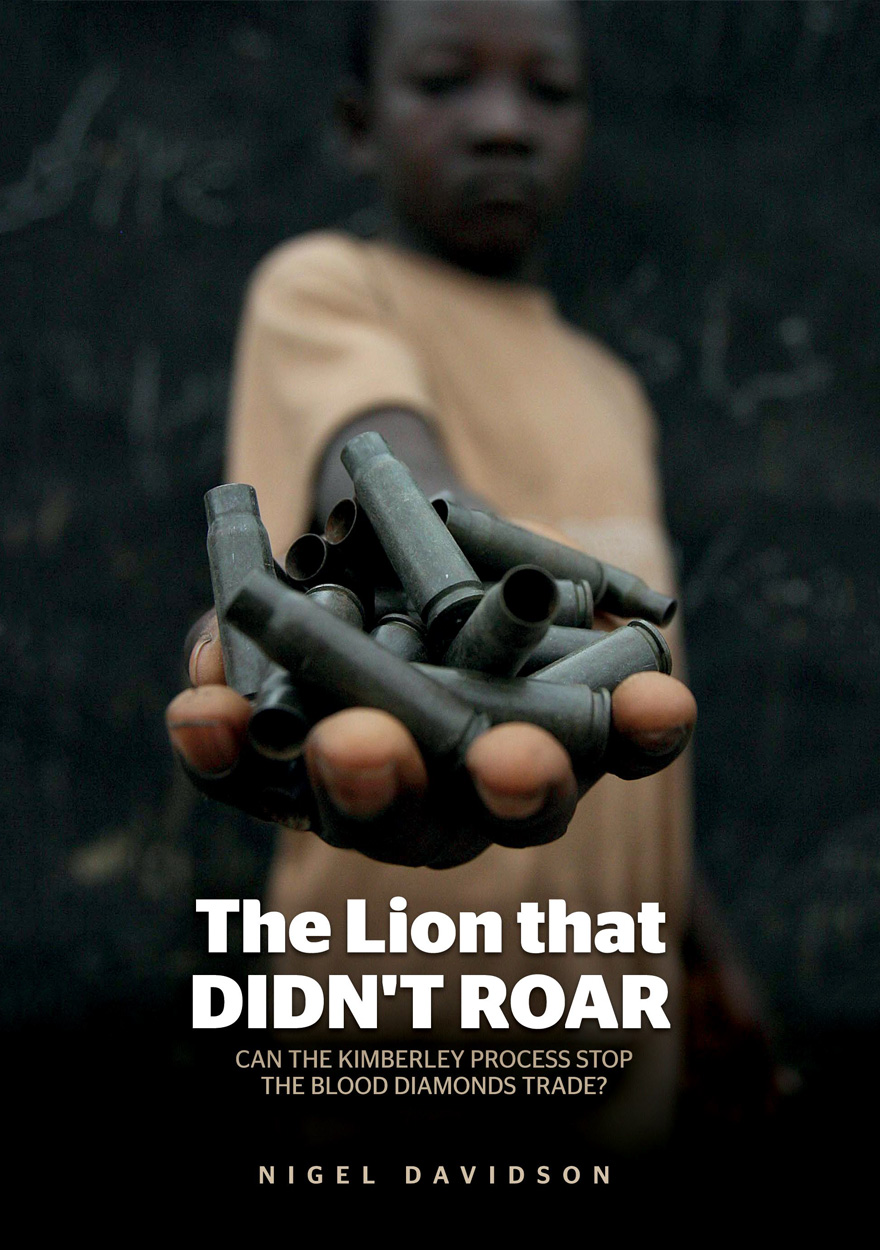
The Lion that Didn't Roar »
Can the Kimberley Process Stop the Blood Diamonds Trade?
Authored by: Nigel Davidson
Publication date: October 2016
In 2017 it will be Australia’s turn to chair the Kimberley Process Certification Scheme (KP), an international organisation set up to regulate the trade in diamonds. Diamonds are a symbol of love, purchased to celebrate marriage, and it is therefore deeply ironic that the diamond trade has become linked with warfare and human rights violations committed in African producer countries such as Sierra Leone, the Democratic Republic of Congo and, more recently, Zimbabwe and Angola. In their quest for diamonds, or by using diamonds to purchase weapons, armed groups in these countries have engaged in recruiting child soldiers, amputating limbs, and committing rape and murder. In response to the problem, the international community, non-governmental organisations and key industry players such as De Beers combined forces to create the Kimberley Process in 2002. The KP uses an export certificate system to distinguish the legitimate rough diamond trade from so-called ‘blood diamonds’, which are also known as ‘conflict diamonds’. This book considers the extent to which the KP, supported by other agencies at the international and national levels, has been effective in achieving its mandate. In so doing, it presents an original model derived from the domain of regulatory theory, the Dual Networked Pyramid, as a means of describing the operation of the system and suggesting possible improvements that might be made to it.
Nigel Davidson spoke with 936 ABC Hobart about what Australia can do to help stop blood diamonds. Listen to the full interview here.

Made in China Journal: Volume 1, Issue 3, 2016 »
Publication date: September 2016
The core of this issue is dedicated to a special section on Chinese labour and investment in Africa, with a specific focus on Ghana and Zambia. You will also find an analysis of the current situation of the Chinese working classes and the prospects for the political representation of labour in China, as well as an examination of the struggles that Chinese workers face when they attempt to access the legal system. The issue also includes an overview of recent worker struggles in India and an essay on Zhao Liang’s Behemoth.
Download for free
Not available for purchase
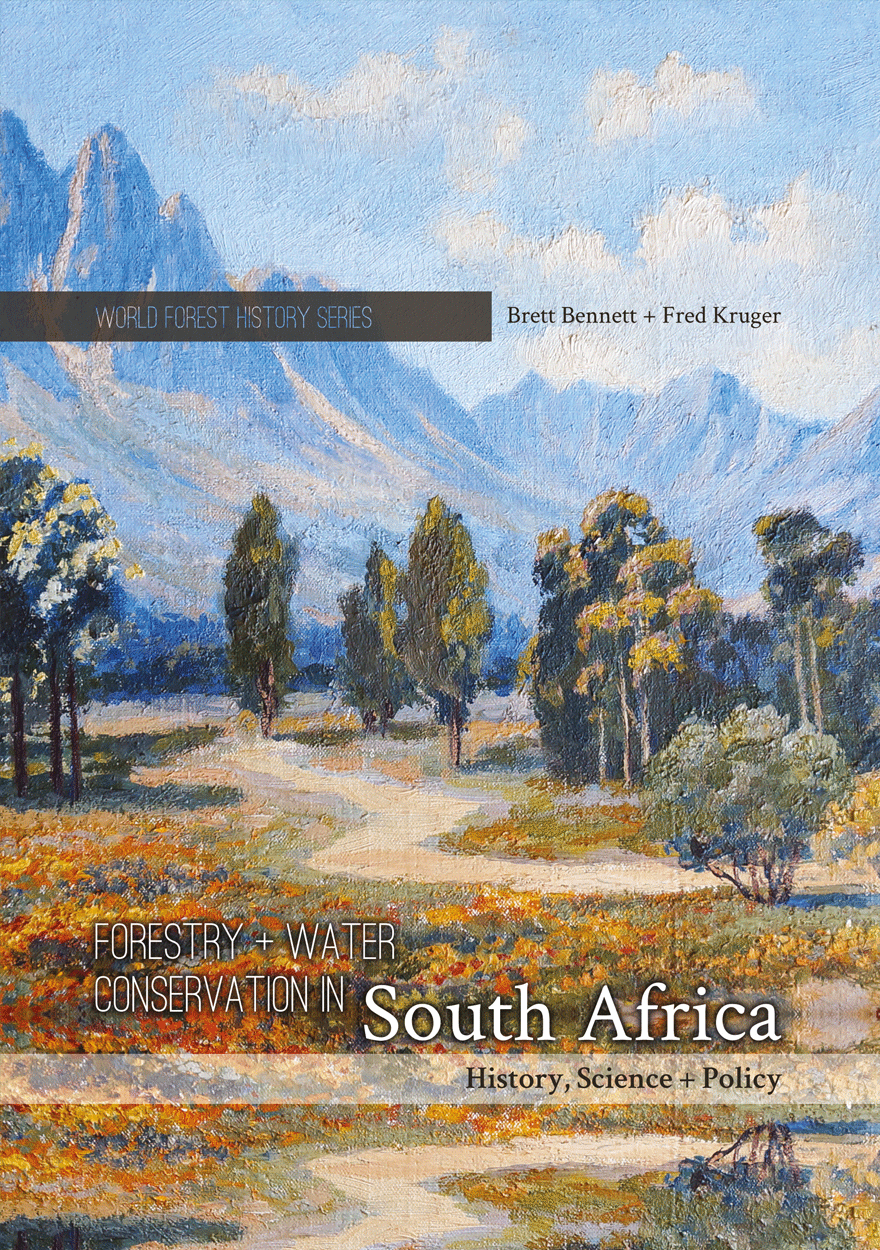
Forestry and Water Conservation in South Africa »
History, Science and Policy
Authored by: Brett Bennett, Fred Kruger
Publication date: November 2015
This innovative interdisciplinary study focuses on the history, science, and policy of tree planting and water conservation in South Africa. South Africa’s forestry sector has sat—often controversially—at the crossroads of policy and scientific debates regarding water conservation, economic development, and biodiversity protection. Bennett and Kruger show how debates about the hydrological impact of exotic tree planting in South Africa shaped the development of modern scientific ideas and state policies relating to timber plantations, water conservation, invasive species control, and biodiversity management within South Africa as well as elsewhere in the world. Forestry and Water Conservation in South Africa shows how scientific research on the impact of exotic and native vegetation led to the development of a comprehensive national policy for conserving water, producing timber, and protecting indigenous species from invasive alien plants. Policies and laws relating to forests and water began to change in the late 1980s and early 1990s as a result of political and administrative changes within South Africa. This book suggests that the country’s contemporary policies towards timber plantations, guided by the National Water Act of 1998, need to be reconsidered in light of the authors’ findings. Bennett and Kruger also call for more interdisciplinary research and greater emphasis on integrated policies and management plans for forestry, invasive alien plants, water conservation, and biodiversity preservation.
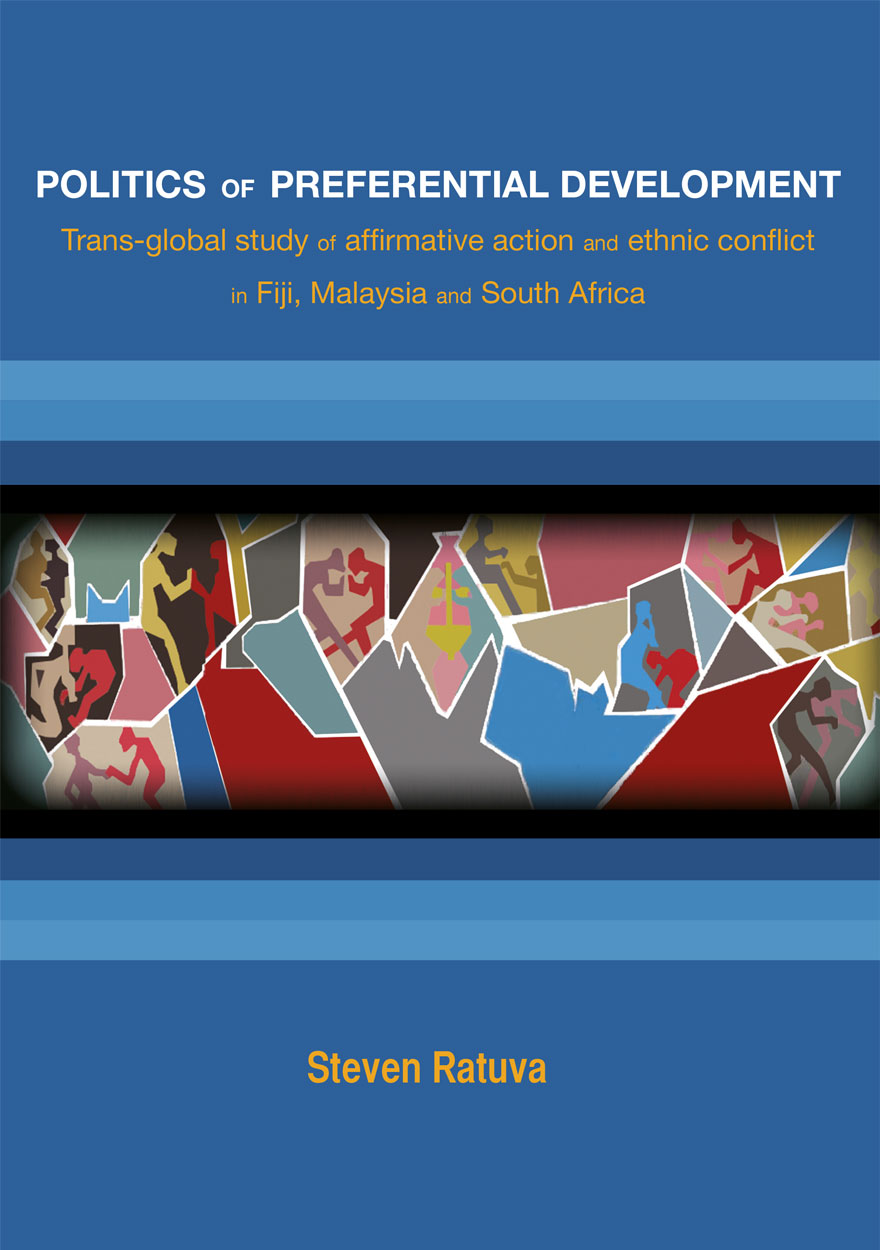
Politics of preferential development »
Trans-global study of affirmative action and ethnic conflict in Fiji, Malaysia and South Africa
Authored by: Steven Ratuva
Publication date: July 2013
The book is a critical examination of affirmative action, a form of preferential development often used to address the situation of disadvantaged groups. It uses a trans-global approach, as opposed to the comparative approach, to examine the relationship between affirmative action, ethnic conflict and the role of the state in Fiji, Malaysia and South Africa. While affirmative action has noble goals, there are often intervening political and ideological factors in the form of ethno-nationalism and elite interests, amongst others, which potentially undermine fair distribution of affirmative action resources. The book examines the affirmative action philosophies and programs of the three countries and raises pertinent questions about whether affirmative action has led to equality, social justice, harmony and political stability and explores future possibilities.
Steven Ratuva provides a brilliant critical study, not just of affirmative action policy and practice in three very different postcolonial contexts, but of the very complex matters of principle, justification and ideology that are involved more generally. It is an invaluable contribution to the literature on this important topic.
— Dr Stephanie Lawson, Professor of Politics and International Relations, Macquarie University.
Scholarly and provocative, Steven Ratuva’s Politics of Preferential Development is an original and insightful comparative contribution to the growing literature on affirmative action around the world.
— Dr Ralph Premdas, Professor of Public Policy, University of West Indies; Former Professor, University of California Berkeley and University of Toronto.

Rising China: Global Challenges and Opportunities (Chinese version) »
崛起的中国:全球机遇与挑战(预售)
Edited by: Jane Golley, Ligang Song
Publication date: May 2012
“中国经济前沿”丛书致力于对中国经济发展中的热点问题提供最新的研究成果与解读视角,作者均为国内外相关研究领域最具权威或居于研究前沿的学者。收录的论文无论在理论研究还是实证分析方面,都具有相当高的水准。本书集中于全球金融危机对中国的影响,分别从经济、地缘政治和环境气候变化视角解读世界和中国未来的发展走势。
Chinese print version of this book is available from Social Science and Academic Press
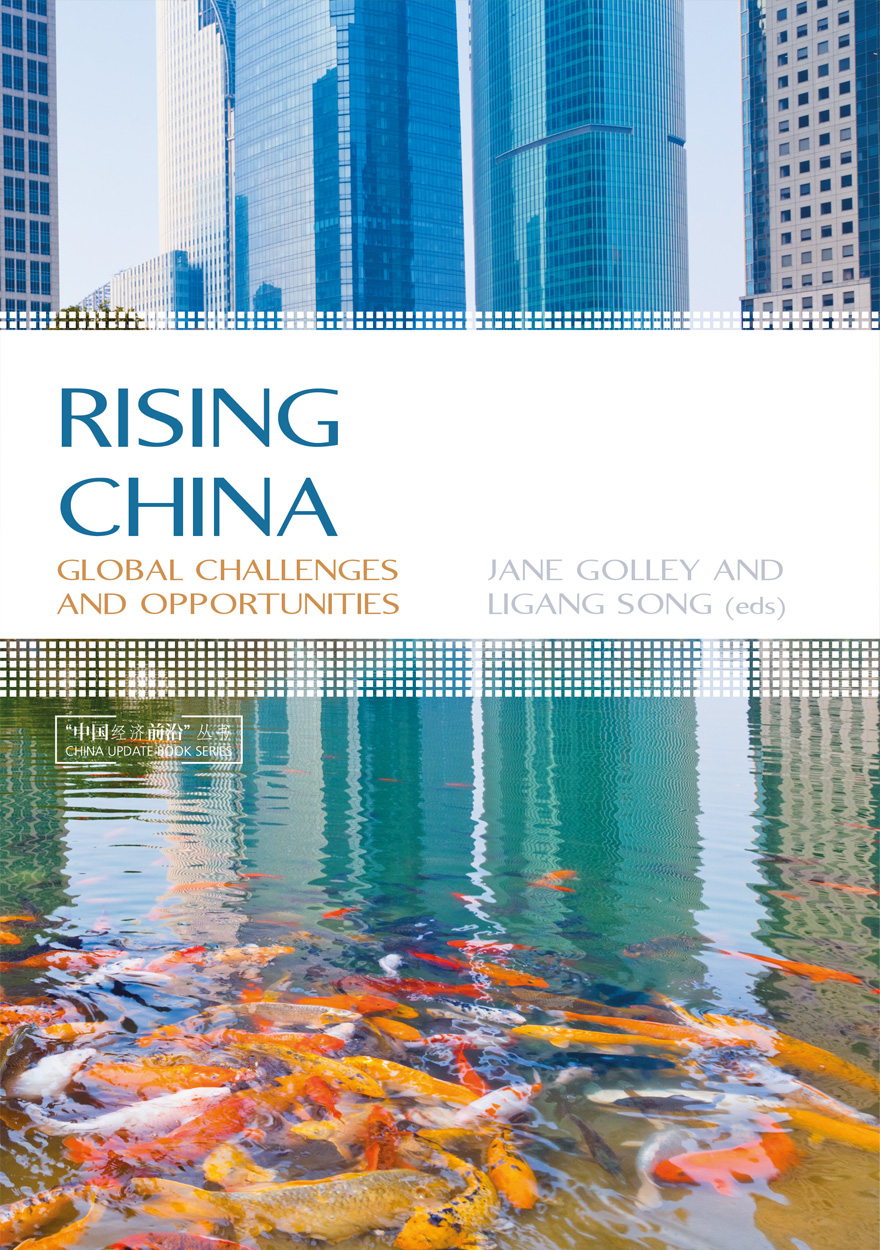
Rising China: Global Challenges and Opportunities »
Edited by: Jane Golley, Ligang Song
Publication date: June 2011
Where the last three decades of the 20th century witnessed a China rising on to the global economic stage, the first three decades of the 21st century are almost certain to bring with them the completion of that rise, not only in economic, but also political and geopolitical terms. China’s integration into the global economy has brought one-fifth of the global population into the world trading system, which has increased global market potential and integration to an unprecedented level. The increased scale and depth of international specialisation propelled by an enlarged world market has offered new opportunities to boost world production, trade and consumption; with the potential for increasing the welfare of all the countries involved.
However, China’s integration into the global economy has forced a worldwide reallocation of economic activities. This has increased various kinds of friction in China’s trading and political relations with others, as well as generating several globally significant externalities. Finding ways to accommodate China’s rise in a way that ensures the future stability and prosperity of the world economy and polity is probably the most important task facing the world community in the first half of the 21st century. The book delves into these issues to reflect upon the wide range of opportunities and challenges that have emerged in the context of a rising China.
Chinese translation
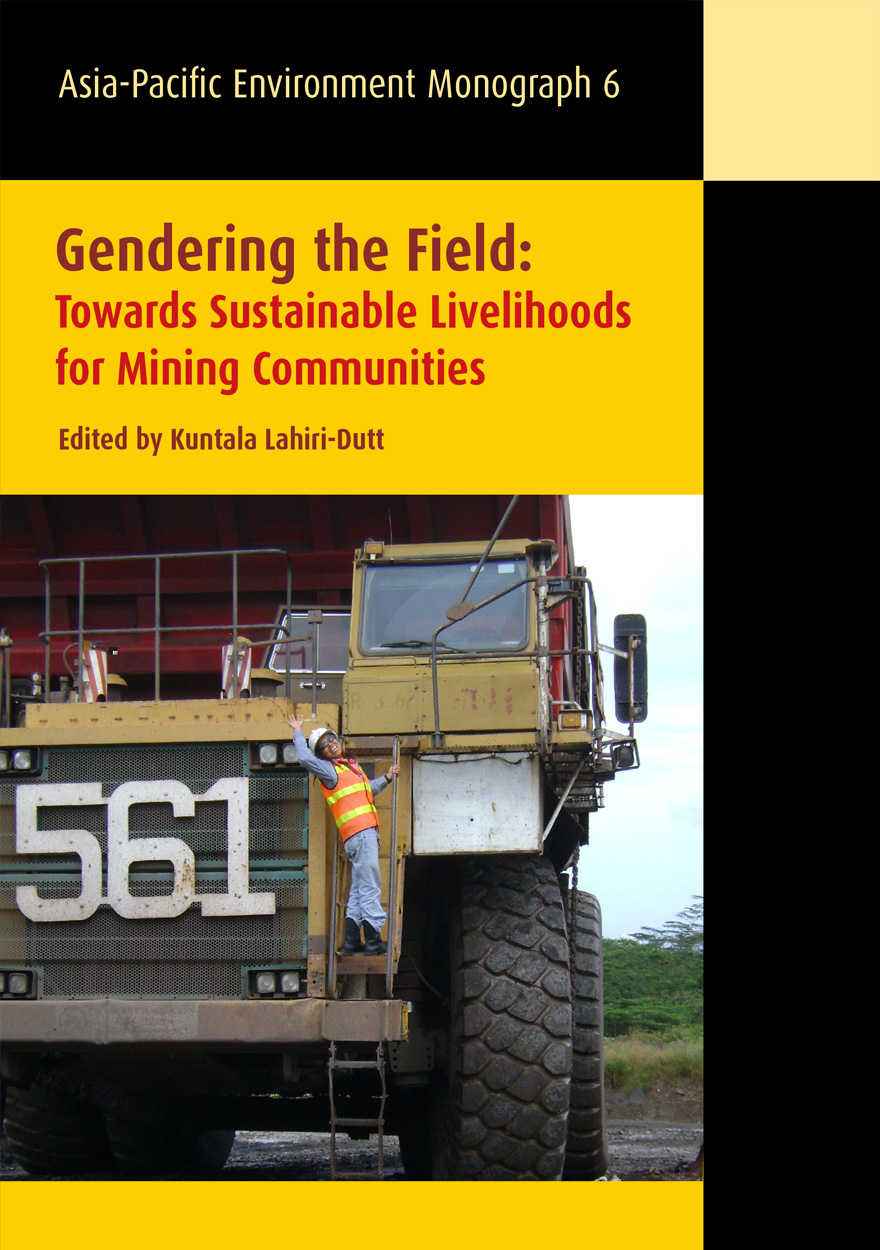
Gendering the Field »
Towards Sustainable Livelihoods for Mining Communities
Edited by: Kuntala Lahiri-Dutt
Publication date: March 2011
The chapters in this book offer concrete examples from all over the world to show how community livelihoods in mineral-rich tracts can be more sustainable by fully integrating gender concerns into all aspects of the relationship between mining practices and mine affected communities. By looking at the mining industry and the mine-affected communities through a gender lens, the authors indicate a variety of practical strategies to mitigate the impacts of mining on women’s livelihoods without undermining women’s voice and status within the mine-affected communities.
The term ‘field’ in the title of this volume is not restricted to the open-cut pits of large scale mining operations which are male-dominated workplaces, or with mining as a masculine, capital-intensive industry, but also connotes the wider range of mineral extractive practices which are carried out informally by women and men of artisanal communities at much smaller geographical scales throughout the mineral-rich tracts of poorer countries.



